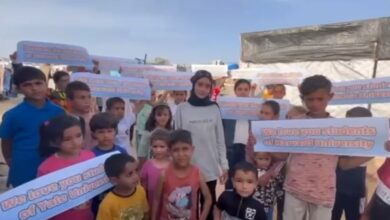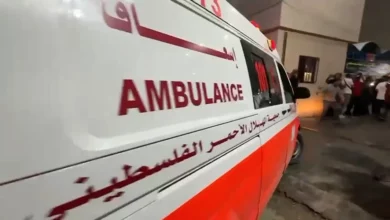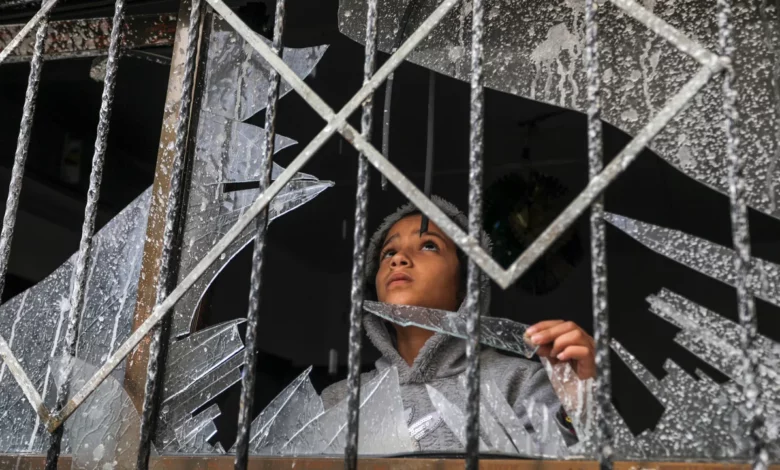
“I am on my way to see my home… my family that is under the rubble,” Mahmoud Moharram, a displaced Palestinian, said as he walked with a group of residents hoping to return to northern Gaza while the lull in fighting holds.
“We want to get our relatives, our children,” Moharram, who, along with countless Palestinians, evacuated his home in the north amid Israel’s military campaign, told CNN.
“We left them. We want to go home,” he added.
The long-awaited Friday truce between Israel and Hamas has provided thousands of Palestinians in the Gaza Strip with a moment’s respite from nearly seven weeks of fighting. The sound of overhead military drones on Friday quietened for the first time since October 7 – the day Hamas brutally assaulted Israeli cities, killing more than 1,200 people in the largest such attack on Israel since the country’s founding in 1948.
The strikes on Gaza may have paused, but residents are still faced with destroyed homes, missing loved ones and aid that is only slowly trickling in.
Many are using the lull in fighting to try to travel back north, despite the Israeli military warning against this.
Shortly before the truce was due to come into effect, Israel was eager to remind Palestinians in Gaza that this was only a temporary lull in fighting and did not signify an end to the war.
“The war is not over yet,” Israel Defense Forces (IDF) Arabic spokesperson Avichay Adraee said in a video posted on X on Friday. “The cessation of hostilities for humanitarian purposes is temporary.”
Adraee also warned Gazans against heading back north, saying that part of the territory “is a dangerous war zone and it is forbidden to move toward it.”
Flyers in Arabic were also dropped across southern Gaza on Friday morning, bearing similar information and instructions.
But many Gazans say they need to use this pause in fighting to return home, where memories, belongings, money, clothes and even some of their loved ones remain – dead or alive.
‘We want to bury them’
“These are our homes, (where we left) our money, our things, our belongings,” said Asa’ad Agha, a displaced Palestinian from Beit Lahia in northern Gaza.
“Our children died, we haven’t been able to bury them,” Agha told CNN. “We want to bury them. We have martyrs tossed all over the streets.”
Palestinians trying to go back north were, however, blocked by Israeli forces, residents and a journalist told CNN.
“What truce are they talking about when tanks are firing at us all morning?” said Abo Mohamed al-Fayoumi, sitting next to some blankets and a white plastic bag that he said held all his belongings.
“We don’t feel any truce, we don’t feel safe,” al-Fayoumi said.
In videos shared on social media, people were seen running away amid the sound of gunfire, presumed to be Israeli, on Salah al-Din Street. A journalist told CNN that Israeli tanks were seen and that gunfire could be heard on the same street, the main highway running north to south through the strip.
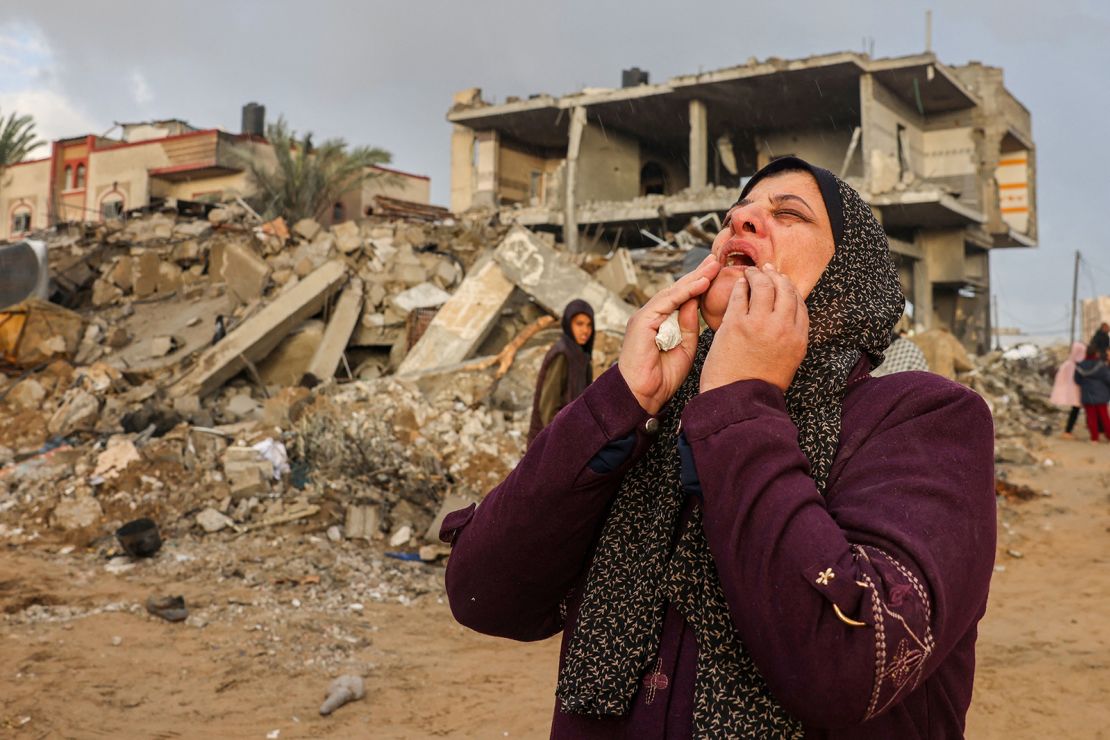
In response to CNN’s questions about whether people attempting to travel north were fired at, the IDF said it “is stationed along the designated operational lines of the pause in accordance with the provisions of the agreed upon framework.”
The IDF earlier called on residents to use the time provided by the truce to “stock up on needs and arrange affairs” instead of traveling to the north. The only movement allowed in the north would be for residents evacuating southward, the IDF said.
It is unclear how many of the 1.1 million people populating Gaza’s north before the evacuation remain there. United States Special Envoy David Satterfield earlier this month said between 350,000 and 400,000 were still in the north.
More than 1.7 million of the territory’s population of 2 million are internally displaced, according to the United Nations Relief and Works Agency for Palestinian Refugees (UNRWA).
Aid trickles in
As the brief truce holds, aid is being brought into the territory while it still can be.
At least 90 out of 200 aid trucks containing food, water, relief and medical supplies have so far entered Gaza through the Rafah border crossing on Friday, an Egyptian official at the border told CNN.
The Palestinian Red Crescent said Friday that its teams had received two ambulances and 85 trucks from its Egyptian counterpart.
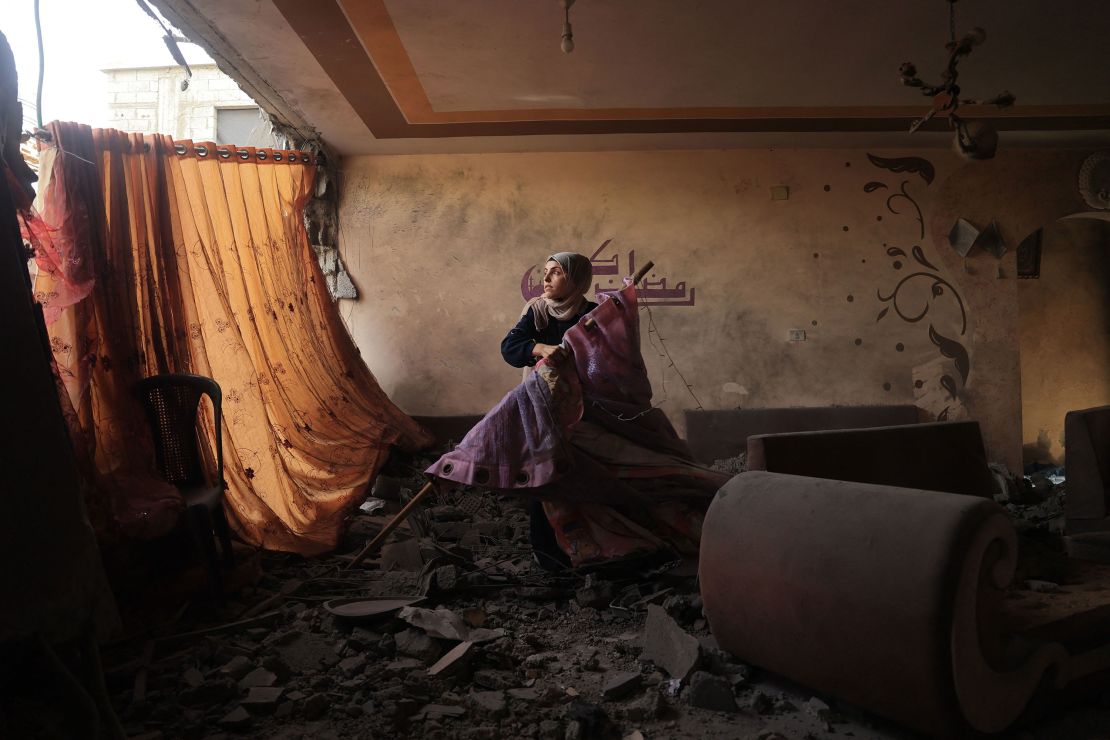
Much-needed fuel is also on its way into the territory, with at least seven fuel trucks having so far crossed from Egypt into Gaza, according to a journalist working for CNN on the ground.
Israel’s Coordinator of Government Activities in the Territories (COGAT) said in a statement that four fuel tankers and four tankers carrying cooking gas provided by the Israeli government had also crossed into Gaza through Rafah on Friday morning.
Homes, shelters and hospitals have been left without electricity in recent days and weeks, as the territory ran out of fuel needed to power generators.
The arriving aid is being distributed by UNRWA.
Palestinians on Friday called for a safe corridor that would allow them to cross north, gather their belongings, bury their dead and then return south.
“If they could just establish a crossing corridor for us, to go to our homes and come back,” said Agha.
More than 14,000 Palestinians have been killed in Gaza since the war began, according to the Hamas-controlled health ministry there.
“Our people are gone. There is no one left,” Moharram said.

